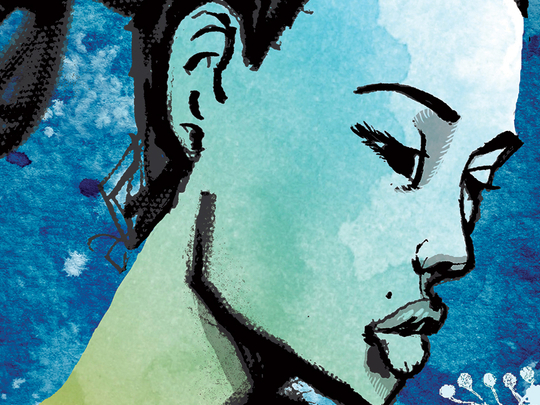
A Girl in Exile
By Ismail Kadare, translated by John Hodgson, Harvill Secker, 192 pages, £17
“I have tried,” remarked Ismail Kadare in a 1998 “Paris Review” interview, “to make a sort of synthesis of the grand tragedy and the grotesque.” In this, for better and for worse, he has succeeded. Kadare is a writer who excels in the cataloguing of human errors and horrors, in a style and in forms that one might rightly describe as synthesised.
Born in Albania, and having lived in Paris for many years, he is one of those rare writers of international reputation who has managed to avoid the pitfalls and indulgences of bland, postmodern, transcultural “world literature” and whose work remains truly peculiar, local and challenging. This does not necessarily make for easy reading. “A Girl in Exile” is a book about a gone girl — but it is no “Gone Girl”.
Kadare has been writing difficult and troubling fiction for many years now: his first novel was published in Albania in 1963. Slowly, gradually, translations into French and into English have brought him to an ever wider audience.
In 2005 he won the inaugural International Man Booker prize. Last year he was awarded the prestigious Jerusalem prize. He is often touted as a potential recipient of the Nobel prize.
The books — and I am judging them largely on the basis of translations, and translations of translations, usually from French from the original Albanian — are strange and fluid in form, yet obsessive and repetitive in their concerns.
In particular, Kadare returns constantly to explore the ways in which classical tragedy and myth, with their insights into the nature of loyalty and betrayal, and the duties and obligations of the individual to the state, might act as a commentary on the plight of the individual under contemporary regimes.
His work is neither directly confrontational — he is not easily categorised as a dissident writer, for example, and has indeed often been criticised for not being nearly dissident enough — nor is it blithely reassuring or comforting. There have been great triumphs: “Agamemnon’s Daughter” and “The Palace of Dreams”. And there have been some truly horrible disasters, such as “The File on H”. “A Girl in Exile” — first published in Albanian in 2009 — is late, great Kadare.
The book concerns the plight of a playwright, Rudian Stefa. Like many of Kadare’s protagonists, Stefa is recalcitrant, complex and deeply dislikable. He is self-regarding, self-obsessed and unfaithful to his current girlfriend, seeing another woman, Migena (spot the anagram), whom he assaults during an argument, knocking her head against some bookshelves. “He had stretched out his hand as if to seize a girl by the hair two or three times in his life, but had never actually done it. Now it happened with unexpected ease.”
When he is summoned for questioning by the Party Committee, Stefa fears that Migena has reported him, or that he is in some kind of trouble over his latest play. It turns out that his interrogators are more concerned about the death of a young woman, a friend of Migena’s, Linda B, whose body has been found with a copy of Stefa’s latest book.
What follows are details of the investigation, along with excerpts from Stefa’s play, dream sequences, various musings and revelations, interspersed with meditations on the myth of Orpheus and Eurydice. Melodrama becomes myth, and the myth in turn informs the melodrama.
The novel is translated directly from the Albanian by John Hodgson, who has translated a number of Kadare’s books, and the prose is pleasingly odd, the locutions and idioms strained and startling.
In English, Kadare sounds ponderous and precise, like someone continually reaching — and overreaching — for the right words. “A comb fell, and after the comb a pile of books whose names for some reason forced themselves up on to his frantic eyes.”
“A Girl in Exile” is a book about learning to live with the dead, and with death, with shadows and with loss. It’s about ghosts — about spectres haunting people, places, states and psyches. In Stefa’s play, a ghost testifies in court, but his conversation is inaudible to the man who killed him and his words to the killer are inaudible to those sitting in judgment. “No dramatist had dared to make such an alteration to the figure of the ghost in thousands of years. It was not a superficial change — like making the ghost half vaporous and half real, or putting him in a dinner jacket and a gas mask — it was an essential reconception. His ghost would be dual-natured.” Kadare is a double man, writing about divided selves.
–Guardian News & Media Ltd









